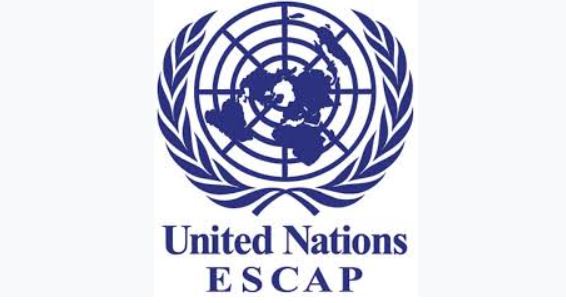News Flash
News Flash

DHAKA, April 24, 2025 (BSS) - Bangladesh has achieved a significant
diplomatic triumph at the Eighty-First Session of the Economic and Social
Commission for Asia and the Pacific (UNESCAP) in Bangkok, Thailand (21-25
April 2025).
Demonstrating its growing leadership in regional cooperation, Bangladesh
successfully contested and won elections for the Governing Councils of two
prestigious regional institutions under UNESCAP, said a press release today.
Bangladesh has been elected to serve a three-year term on the Governing
Councils of Asia-Pacific Training Centre on ICT for Development (APCICT) and
Asia-Pacific Centre for the Development of Disaster Information Management
(APDIM).
The inauguration session featured remarks from United Nations Under-
Secretary-General and Executive Secretary of ESCAP Armida Salsiah Alisjahbana
and Thai Prime Minister Paetongtarn Shinawatra as well as several ministers
from across the region.
Minister of Foreign Affairs of Nepal was elected as the Chair of the 81st
session and Bangladesh's Special Assistant to the Chief Adviser for Finance
became a Vice-Chair, among others.
The inaugural session featured a compelling video address from the Chief
Adviser Professor Muhammad Yunus, who passionately advocated for strengthened
regional and global cooperation in all directions.
He underscored the necessity of collaborative efforts to address shared
challenges and called for the creation of a new world founded on the
principles of zero poverty, zero unemployment, and zero net carbon emissions.
He reaffirmed Bangladesh's unwavering commitment to fostering sustainable and
inclusive development across the Asia-Pacific region.
The Bangladesh delegation at this crucial session is being expertly led by
Special Assistant to the Chief Adviser for Finance y Dr Anisuzzaman
Chowdhury.
Accompanying him are key government figures including Secretary of the
Information and Communication Technology Division (ICTD) Shish Haider
Chowdhury and Secretary of the Economic Relations Division (ERD) Md Shahriar
Kader Siddiky alongside other senior officials from various ministries and
the Bangladesh Embassy in Thailand.
Further underscoring Bangladesh's active engagement, particularly in the
session on 'Regional cooperation for resilient and sustainable urban
development in Asia and the Pacific, Dr Anisuzzaman Chowdhury played a
pivotal role in shaping the discourse on sustainable development.
He strongly urged ESCAP and its member states to significantly enhance
technical assistance, foster robust research collaboration, and increase
investment in smart, green, and resilient urbanization projects. throughout
the Asia-Pacific region.
In his address during the session, Shish Haider Chowdhury emphasized key
priorities for the nation and the region. He stressed the importance of
developing multimodal transportation systems, enhancing access to climate
financing, and fostering cross-border solutions to address transboundary
challenges for achieving resilient and sustainable urban development.
He said Bangladesh further championed its vision for a sustainable future by
organizing a high-profile side event centered on "Sustainable Urbanization
through Three Zeros."
This initiative promotes an innovative model for urban development firmly
anchored in the principles of zero poverty, zero unemployment, and zero net
carbon emissions, a framework derived from Professor Dr Muhammad Yunus's
book, "A World of Three Zeros: The New Economics of Zero Poverty, Zero
Unemployment, and Zero Net Carbon Emissions," which outlines a vision for a
sustainable and equitable future, he added.
Contributing to the discourse during the session on the "Three Zeros,"
Secretary of the Economic Relations Division Md Shahriar Kader Siddiky
highlighted the critical importance of regional partnerships in advancing the
agenda of zero poverty, zero unemployment, and zero net carbon emissions.
He emphasized the need for fostering robust knowledge exchange, mobilizing
financial investment, and extending technical assistance to effectively
support developing countries in their complex urban transformation journeys
towards achieving these ambitious goals.
Beyond the elections and thematic sessions, the Bangladesh delegation engaged
in a productive bilateral meeting with the Executive Secretary of UNESCAP.
Discussions focused on strengthening collaborative efforts in critical areas
such as ICT development and bolstering regional resilience against various
challenges.
This significant dual electoral victory reflects the international
community's growing confidence in Bangladesh's progressive policies and its
impactful leadership within the region. Bangladesh extends its sincere
gratitude to all member states for their valuable support and to the
Executive Secretary of UNESCAP for her renewed commitment to closer
collaboration with Bangladesh in key priority sectors.